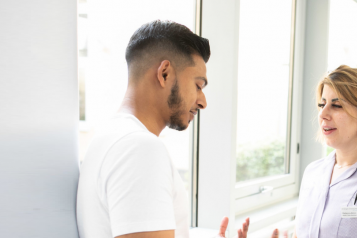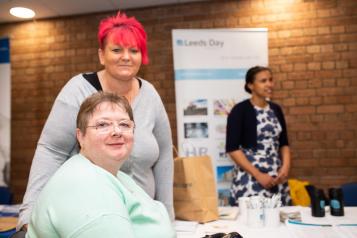Warwickshire Carers Week
You don't need to do it alone. Find out about support in Warwickshire.

Warwickshire carers encouraged to access support service.
Monday 10 June 2019 marked the first day of Carers Week, bringing an opportunity for Healthwatch Warwickshire and Warwickshire County Council (WCC) to raise awareness of the different services on offer in Warwickshire to help make carers’ lives a little bit easier.
What is a carer?
A carer is anyone who regularly provides unpaid help to someone who could not cope without them. Unfortunately many people do not realise that they are carers, while many who do realise are unaware that there is support available for them.
With 108,000 of Warwickshire residents registered with their GP as having some form of caring responsibility and the true number likely to be higher, it is vital that WCC ensures carers can access the support they need to retain their own independence and wellbeing.
Carers Week is a national event that takes place each year to both celebrate the vital work carers do to support people in our communities, and to raise awareness of the help that is available for them. Carers Week is about building communities which support carers to look after their loved ones well, while recognising that they are individuals with health and wellbeing needs of their own.
Councillor Les Caborn, Portfolio Holder for Health and Wellbeing, said:
“Caring for a loved one can be a full-time job, something that affects your life every day. In Warwickshire it’s a priority for us to ensure people stay safe, healthy, and independent and Carers Week is a fantastic opportunity for us to raise awareness of the support available specifically for carers.
The Warwickshire Carer Wellbeing Service provides carers with emotional and practical support they can access in person, over the phone, or via Skype or FaceTime. It’s a fantastic resource and I urge all carers to reach out and see what the service could help you with.”
Carers are a socially and demographically diverse group, and as the demand for care is projected to grow, people are increasingly likely to become providers of care at some point in their lives.
To find out more information about the county council’s offer for carers in Warwickshire, go to www.warwickshire.gov.uk/carers


